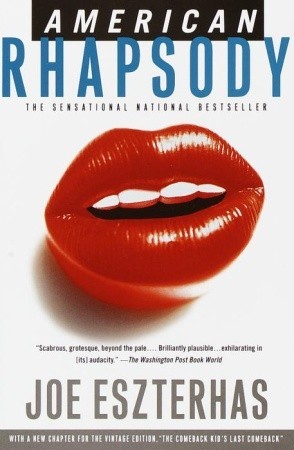« February 09, 2014 - February 15, 2014 | Main | February 23, 2014 - March 01, 2014 »
February 20, 2014
The Economist: A global look at "the entrepreneur".
In his column this month at The Economist, our friend Schumpeter (Adrian Wooldridge) asks "What exactly is an entrepreneur?" The common sense (if dispiriting) point he makes is that entrepreneurs seem to fall generally into two very different groups: (1) the relatively few but highly publicized, celebrated success stories that give the word "entrepreneur" its current cache, and (2) what the piece calls "Mom-and-Pop shops", the countless small businesses across the globe that are viable but never significantly grow. (And as Schumpeter notes, entrepreneurial "success stories" have, of course, put lots of independents worldwide out of business.) An excerpt from the column:
Countries with a lot of small companies are often stagnant. People start their own businesses because there are no other opportunities. Those businesses stay small because they are doing exactly what other small businesses do. The same is true of industries. In America industries that produce more entrepreneur billionaires tend to have a lower share of employees working in firms with less than 20 employees.
This makes sense: successful entrepreneurs inevitably destroy their smaller rivals as they take their companies to scale. Walmart became the world’s largest retailer by replacing thousands of Mom-and-Pop shops. Amazon became a bookselling giant by driving thousands of booksellers out of business. By sponsoring new ways of doing things entrepreneurs create new organisations that employ thousands of people including people who might otherwise have been self-employed. In other words, they simultaneously boost the economy’s overall productivity and reduce its level of self-employment.

Schmidt, Brin and Page of Google. May 20, 2008.
Posted by JD Hull at 01:52 AM | Comments (0)
February 19, 2014
Raymond Ward: On Client-Centered Writing. And Vampires.
The Net, unfortunately, is mainly about what's trendy and hot. Most blog posts, like old newspapers, are dated within 24 hours of publication. But a few have an enduring, evergreen quality. Do take a look at this post by Adams and Reese's Raymond Ward called "The Vampires of Legal Writing" at his the (new) legal writer. Ray notes that over-reliance on legal forms and other stock language "tends to perpetuate bad legal writing."
The problem really isn’t with forms themselves. A good set of forms, properly used, can save time and serve as helpful guides. The problems arise with what contract-drafting guru Ken Adams calls “uncritical regurgitation”—the slavish adherence to poor or obsolete forms. Here are some tips for reaping the benefits of forms while avoiding the problems that over-reliance on them can cause.
Read Ray's four tips in his post. And we would emphasize that forms, even when they are not obsolete, can cause nightmares via their boilerplate alone. In both transactional work and litigation (especially discovery), lawyers often rely on and use stock provisions and language that are either inappropriate or just plain wrong for the matter at hand. Forms are a doorway to stale thinking and even non-thinking. In fact, they can be dangerous. If you're in doubt about the form you are using, don't use it. Toss it--and just rely on your brain.

Posted by Holden Oliver (Kitzbühel Desk) at 12:59 AM | Comments (0)
February 18, 2014
Americans still select state judges through popular elections. Why?
Yes, we continue to bang this drum. But we think that the popular election of state judges is bad for everyone, and especially bad for businesses, both American and non-American companies, that typically appear before judges in a number of states. American state courts with judges chosen popularly send a message to citizens, clients and the entire world that (1) judges have "constituents", and (2) justice in those forums is for sale. The majority of states still maintain keep these systems. If you are interested in changing that, then do see "Choose Judges on Merit", a site by our favorite sane voice in the wilderness, Pennsylvanians for Modern Courts.
.jpg)
Posted by JD Hull at 11:59 PM | Comments (0)
February 17, 2014
Best Book, Hands Down, on any American President: Joe Eszterhas's American Rhapsody.
In 2000, Joe Eszterhas, former Rolling Stone editor, celebrated screenwriter, outspoken Hollywood insider and fellow Buckeye, unleashed my favorite non-fiction book: American Rhapsody. In it Eszterhas explores every fact, nuance, rumor and flight of intelligent fancy on the subject of Bill Clinton's 1995-1997 relationship with Monica Lewinsky, its real roots and the scandal as it emerged in 1998. The book is a masterful, often analytical, way-funny and brilliantly perceptive romp through scores of players, famous and obscure, with a part or bit part in the Clinton-Lewinsky drama. Esterhas has also dissected and thoroughly sussed one William Jefferson Clinton, and it's an achievement. American readers, depending on his or her sensibilities and politics, will come away liking, or disliking, the man even more. Two other bonuses come to mind. American Rhapsody is also a fine history (told in flashbacks) of American Baby Boomers, and a painstaking interpretation of Boomer culture. And Eszterhas is simply a joy to read. He is one of the most gifted writers of English, in any genre, of the last forty years.

Posted by JD Hull at 02:34 PM | Comments (0)